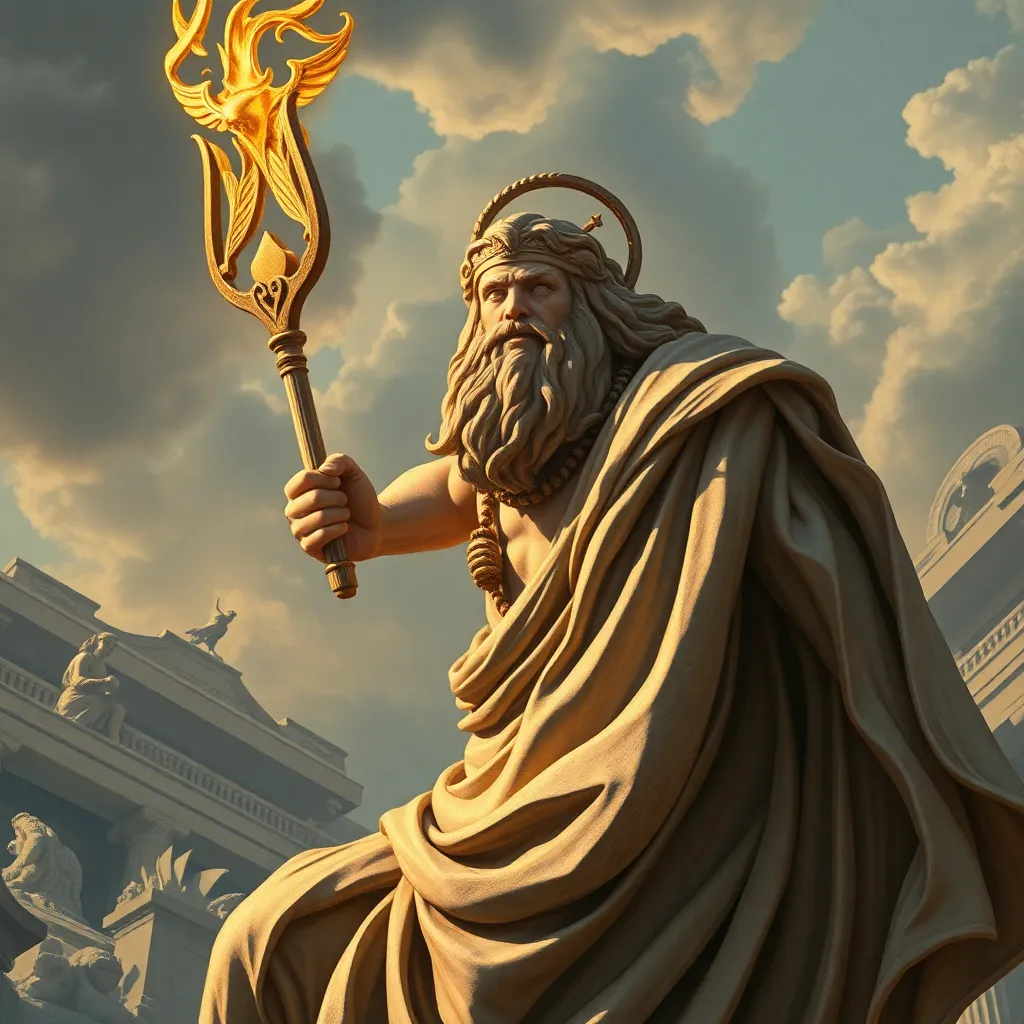Odysseus and the Theme of Fate vs. Free Will in Greek Myth
I. Introduction
Odysseus stands as one of the most celebrated figures in Greek mythology, renowned for his cunning intellect, bravery, and resilience. As the protagonist of Homer’s epic poem, “The Odyssey,” he embarks on a perilous journey home after the Trojan War, facing numerous challenges and divine obstacles. Within the rich tapestry of his adventures, a significant theme emerges: the tension between fate and free will. This article aims to explore how these profound themes manifest throughout Odysseus’s journey, shedding light on his character and the broader implications for ancient Greek literature.
II. The Concept of Fate in Greek Mythology
In ancient Greek belief, fate, or Moira, is an essential concept that denotes the predetermined course of human life. The Moirai, or Fates, are three goddesses responsible for weaving the threads of destiny, determining the lifespan and fate of every individual. Their names are Clotho, who spins the thread of life; Lachesis, who measures it; and Atropos, who cuts it, signifying death.
The role of the Fates is crucial in Greek mythology, as they embody the belief that while humans may strive for agency, their ultimate destinies are often beyond their control. Other examples of fate can be found in myths featuring characters such as:
- Oedipus: Fated to kill his father and marry his mother, despite efforts to avoid this prophecy.
- Achilles: Foretold to die young, yet his choices in battle reflect a tension between fate and personal honor.
- Theseus: His adventures often intersect with prophecies that shape his life and decisions.
III. Odysseus: A Hero Caught in the Web of Fate
Odysseus’s journey in “The Odyssey” is laden with the weight of predetermined fate. From the outset, it is clear that his return to Ithaca is foreseen, yet fraught with challenges. Key moments that highlight his fate include:
- The prophecy of Teiresias, which foretells Odysseus’s arduous journey and the trials he must endure.
- The intervention of the goddess Athena, who assists him in navigating the obstacles set by other deities, particularly Poseidon.
- The various encounters with mythical creatures and divine forces that test his resolve and character.
These elements emphasize that while Odysseus is destined to return home, the path is anything but straightforward. His character is shaped by these fateful events, leading to moments of introspection and growth as he grapples with the implications of his fate.
IV. The Exercise of Free Will: Odysseus’s Decisions and Actions
Despite the overarching influence of fate, Odysseus exhibits a strong sense of agency throughout his journey. He often makes strategic decisions that reflect his intelligence and adaptability, such as:
- Outsmarting the Cyclops, Polyphemus, by devising a clever escape plan.
- Choosing to resist the temptations of Circe and the Sirens, demonstrating his willpower.
- Making decisions about whom to trust and how to navigate the various challenges he faces.
This balance between divine influence and personal choice illustrates the complexity of his character. Odysseus’s decisions have significant consequences that shape the trajectory of his journey, highlighting the interplay between fate and free will.
V. The Role of the Gods in Shaping Fate and Free Will
Divine intervention plays a pivotal role in “The Odyssey,” as various gods and goddesses influence Odysseus’s fate. Athena, the goddess of wisdom and war, often aids him, while Poseidon, the god of the sea, seeks to thwart his return due to the blinding of his son, Polyphemus. This dynamic creates a tension between divine will and human action, as Odysseus navigates his challenges with the favor and ire of the gods.
Key gods and their influence include:
- Athena: Provides guidance, wisdom, and support, reflecting the favorable aspect of divine intervention.
- Poseidon: Represents the challenges of fate, using his powers to create obstacles that Odysseus must overcome.
- Hermes: Acts as a messenger and guide, assisting Odysseus at pivotal moments.
This interplay of divine forces illustrates the complexity of fate in Greek mythology, where the gods’ whims can alter the course of human lives.
VI. The Duality of Fate and Free Will in Odysseus’s Character
Odysseus embodies the duality of fate and free will, making him a multifaceted character. His internal struggles regarding his destiny reflect broader philosophical questions surrounding human agency. He often contemplates the nature of his journey, questioning whether his decisions truly matter in the face of predetermined fate.
This complexity is evident in his relationships and encounters, revealing a man torn between accepting his fate and exercising his free will. Odysseus’s character serves as a microcosm for the human experience, showcasing the universal struggle to balance destiny with personal choice.
VII. Comparative Analysis: Odysseus and Other Greek Heroes
When comparing Odysseus’s experience of fate and free will with other Greek heroes, interesting parallels and contrasts emerge. For instance:
- Achilles: His choices in battle reflect personal honor, yet he is ultimately bound by fate to die young.
- Oedipus: His attempts to escape fate lead to tragic consequences, underscoring the limits of human agency.
- Heracles: His labors are both a result of divine punishment and personal choice, highlighting the complexity of fate.
These comparisons enrich our understanding of how Greek mythology navigates the themes of fate and choice, revealing a shared human experience across different narratives.
VIII. Conclusion
In conclusion, the journey of Odysseus encapsulates the profound themes of fate and free will that permeate Greek mythology. While he is subject to the whims of fate, his choices and actions reveal a remarkable agency that shapes his destiny. Through divine interventions and personal decisions, Odysseus’s character embodies the ongoing struggle between predetermined paths and the freedom to choose. This exploration not only highlights the complexity of his journey but also resonates with the universal human experience of navigating the intricate balance between fate and personal agency.




